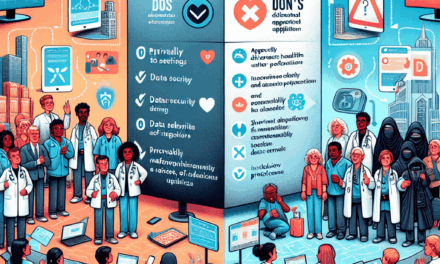Reclaiming Your Life: A Journey Beyond Addiction
Addiction is a complex and multifaceted issue that affects millions of individuals and their families worldwide. It can take many forms, from substance abuse to behavioral addictions, and its impact can be devastating. However, the journey to recovery is not only possible but can also lead to a more fulfilling and meaningful life. This article explores the various aspects of reclaiming one’s life after addiction, providing insights, strategies, and hope for those on this challenging path.
Understanding Addiction: The First Step Towards Recovery
Before embarking on the journey of recovery, it is crucial to understand what addiction is and how it manifests. Addiction is often characterized by compulsive behavior despite harmful consequences. It can stem from various factors, including genetic predisposition, environmental influences, and psychological issues.
According to the National Institute on Drug Abuse (NIDA), approximately 21 million Americans have at least one addiction, yet only 10% of them receive treatment. This statistic highlights the stigma and barriers that many face when seeking help. Understanding the nature of addiction can empower individuals to take the first step towards recovery.
The Science of Addiction
Addiction alters the brain’s chemistry, affecting areas responsible for judgment, decision-making, learning, and memory. Neurotransmitters like dopamine play a significant role in the reward system, reinforcing behaviors that lead to pleasure. When substances or behaviors are repeatedly engaged in, the brain adapts, leading to tolerance and dependence.
- Genetic Factors: Research indicates that genetics can account for 40-60% of an individual’s susceptibility to addiction.
- Environmental Influences: Factors such as family dynamics, peer pressure, and socio-economic status can significantly impact the likelihood of developing an addiction.
- Co-occurring Disorders: Many individuals with addiction also struggle with mental health issues, such as anxiety or depression, complicating the recovery process.
Types of Addiction
Addiction can be broadly categorized into two types: substance addiction and behavioral addiction. Substance addiction includes the misuse of drugs and alcohol, while behavioral addiction encompasses compulsive behaviors such as gambling, gaming, or shopping.
- Substance Addiction: This includes alcohol, prescription medications, and illicit drugs. Each substance has its own set of challenges and withdrawal symptoms.
- Behavioral Addiction: Activities like gambling or internet use can become compulsive, leading to negative consequences in personal and professional life.
The Impact of Addiction
The consequences of addiction extend beyond the individual, affecting families, communities, and society at large. Financial strain, relationship breakdowns, and legal issues are common repercussions. Moreover, addiction can lead to health problems, including infectious diseases, mental health disorders, and even death.
Understanding the far-reaching effects of addiction can motivate individuals to seek help and reclaim their lives. Recovery is not just about stopping the addictive behavior; it is about rebuilding a life that is fulfilling and meaningful.
Finding the Right Treatment: A Personalized Approach
Recovery from addiction is not a one-size-fits-all process. It requires a personalized approach that considers the individual’s unique circumstances, including the type of addiction, co-occurring disorders, and personal goals. Various treatment options are available, and finding the right one is crucial for long-term success.
Types of Treatment Programs
There are several types of treatment programs available for individuals seeking recovery from addiction. These include:
- Inpatient Rehabilitation: This intensive program requires individuals to stay at a treatment facility for a specified period. It provides a structured environment and 24/7 support.
- Outpatient Rehabilitation: This option allows individuals to attend therapy sessions while living at home. It is suitable for those with less severe addictions or strong support systems.
- Detoxification: For substance addiction, detox is often the first step. It involves medically supervised withdrawal to manage withdrawal symptoms safely.
- Therapy and Counseling: Individual, group, and family therapy can help address the underlying issues contributing to addiction.
- Support Groups: Programs like Alcoholics Anonymous (AA) and Narcotics Anonymous (NA) provide peer support and accountability.
Choosing the Right Program
When selecting a treatment program, consider the following factors:
- Accreditation: Ensure the facility is accredited and follows evidence-based practices.
- Specialization: Some programs specialize in specific types of addiction or co-occurring disorders.
- Aftercare Services: A good program will offer aftercare support to help individuals transition back into daily life.
- Cost and Insurance: Understand the costs involved and check if your insurance covers treatment.
The Role of Family in Recovery
Family involvement can significantly impact the recovery process. Families often play a crucial role in supporting their loved ones through treatment and beyond. Family therapy can help address issues within the family dynamic that may contribute to addiction.
Moreover, educating family members about addiction can foster understanding and empathy, reducing stigma and enabling a supportive environment. Family support can be a powerful motivator for individuals in recovery, providing them with a sense of belonging and accountability.
Alternative Therapies
In addition to traditional treatment methods, many individuals find success with alternative therapies. These can include:
- Mindfulness and Meditation: Practices that promote mindfulness can help individuals manage cravings and reduce stress.
- Art and Music Therapy: Creative therapies can provide an outlet for self-expression and emotional healing.
- Exercise and Nutrition: Physical health plays a significant role in recovery. Regular exercise and a balanced diet can improve mood and overall well-being.
Building a Support Network: The Importance of Community
Recovery is often described as a journey best taken with others. Building a support network is essential for maintaining sobriety and fostering personal growth. This network can include family, friends, therapists, and peers who understand the challenges of addiction.
The Role of Support Groups
Support groups provide a safe space for individuals to share their experiences, challenges, and successes. Programs like AA and NA offer structured meetings where members can connect with others who have faced similar struggles. These groups emphasize the importance of accountability and community in the recovery process.
Research has shown that individuals who participate in support groups are more likely to maintain sobriety than those who do not. The shared experiences and encouragement from peers can be invaluable in overcoming obstacles and celebrating milestones.
Finding a Sponsor
In many support groups, individuals are encouraged to find a sponsor—someone who has successfully navigated their recovery journey. A sponsor can provide guidance, support, and accountability, helping individuals stay on track during challenging times.
The relationship between a sponsor and sponsee is built on trust and mutual respect. This mentorship can be a powerful tool in maintaining sobriety and fostering personal growth.
Engaging in Community Activities
Rebuilding a life after addiction often involves reconnecting with the community. Engaging in community activities can provide a sense of purpose and belonging. Volunteering, joining clubs, or participating in local events can help individuals establish new social connections and develop a positive support network.
Moreover, community involvement can shift the focus away from past behaviors and foster a sense of accomplishment and fulfillment. It can also serve as a reminder of the positive impact one can have on others, reinforcing the idea that recovery is not just about oneself but also about contributing to the greater good.
Online Support Communities
In today’s digital age, online support communities have become increasingly popular. These platforms provide individuals with access to support and resources from the comfort of their homes. Online forums, social media groups, and virtual meetings can connect individuals with others in recovery, regardless of geographical location.
While online support can be beneficial, it is essential to approach it with caution. Ensure that the platforms are reputable and that the information shared is evidence-based. Online communities can complement traditional support systems but should not replace face-to-face interactions when possible.
Developing Coping Strategies: Tools for Long-Term Success
Recovery is an ongoing process that requires individuals to develop effective coping strategies to manage triggers and cravings. These strategies can help individuals navigate the challenges of daily life without resorting to addictive behaviors.
Identifying Triggers
Understanding personal triggers is a crucial step in developing coping strategies. Triggers can be emotional, environmental, or social cues that prompt cravings or the desire to engage in addictive behaviors. Common triggers include:
- Stress: High-stress situations can lead to cravings as individuals seek relief through substances or behaviors.
- Social Situations: Being around people who engage in addictive behaviors can trigger cravings.
- Emotional States: Feelings of sadness, loneliness, or anxiety can lead individuals to seek comfort in their addiction.
By identifying these triggers, individuals can develop strategies to avoid or cope with them effectively. This may involve creating a plan for high-risk situations or seeking support from friends or support groups when faced with triggers.
Developing Healthy Routines
Establishing a daily routine can provide structure and stability in recovery. Healthy routines can include:
- Regular Exercise: Physical activity is known to boost mood and reduce stress, making it an essential component of recovery.
- Balanced Nutrition: A healthy diet can improve overall well-being and help manage cravings.
- Mindfulness Practices: Incorporating mindfulness techniques, such as meditation or yoga, can enhance emotional regulation and reduce anxiety.
By prioritizing self-care and healthy habits, individuals can build resilience against cravings and improve their overall quality of life.
Setting Goals for the Future
Setting realistic and achievable goals is vital for maintaining motivation in recovery. Goals can be short-term or long-term and should encompass various aspects of life, including personal, professional, and relational goals.
Examples of goals may include:
- Personal Development: Engaging in new hobbies or pursuing educational opportunities.
- Career Aspirations: Seeking employment or advancing in a current job.
- Building Relationships: Reconnecting with family and friends or forming new, healthy relationships.
By focusing on personal growth and achievement, individuals can cultivate a sense of purpose and fulfillment that reinforces their commitment to recovery.
Practicing Self-Compassion
Recovery is often accompanied by setbacks and challenges. Practicing self-compassion is essential for navigating these difficulties without falling back into old patterns. Self-compassion involves treating oneself with kindness and understanding during tough times, rather than resorting to self-criticism.
Individuals can practice self-compassion by:
- Acknowledging Struggles: Recognizing that setbacks are a normal part of the recovery process.
- Practicing Positive Self-Talk: Replacing negative thoughts with affirmations and encouragement.
- Seeking Support: Reaching out to friends, family, or support groups when feeling overwhelmed.
By fostering a compassionate mindset, individuals can build resilience and maintain their commitment to recovery.
Celebrating Milestones: The Importance of Acknowledgment
Celebrating milestones in recovery is essential for maintaining motivation and reinforcing positive behaviors. Acknowledging achievements, no matter how small, can provide individuals with a sense of accomplishment and encourage them to continue on their journey.
Recognizing Personal Achievements
Personal achievements can take many forms, including:
- Days Sober: Celebrating milestones such as 30, 60, or 90 days sober can serve as a powerful reminder of progress.
- Overcoming Challenges: Acknowledging moments when individuals successfully navigated triggers or cravings.
- Personal Growth: Celebrating new skills, hobbies, or relationships developed during recovery.
By recognizing these achievements, individuals can reinforce their commitment to recovery and build confidence in their ability to maintain sobriety.
Involving Support Networks
Involving friends and family in celebrations can enhance the sense of community and support. Hosting gatherings or sharing achievements with loved ones can create a positive atmosphere that reinforces the importance of recovery.
Moreover, involving support networks in celebrations can help strengthen relationships and foster a sense of belonging. It reminds individuals that they are not alone in their journey and that their progress is valued by those around them.
Creating New Traditions
As individuals reclaim their lives, creating new traditions can be a meaningful way to celebrate recovery. These traditions can include:
- Annual Celebrations: Hosting an annual event to commemorate sobriety milestones.
- Gratitude Practices: Establishing a routine of expressing gratitude for progress and support received during recovery.
- Community Involvement: Engaging in community service or volunteer work as a way to give back and celebrate personal growth.
Creating new traditions can help individuals build a positive identity centered around recovery and personal growth.
Conclusion: A Journey of Hope and Transformation
The journey beyond addiction is undoubtedly challenging, but it is also filled with hope and opportunities for transformation. Understanding addiction, finding the right treatment, building a support network, developing coping strategies, and celebrating milestones are all essential components of reclaiming one’s life.
Recovery is not just about abstaining from addictive behaviors; it is about rebuilding a life that is fulfilling and meaningful. By embracing the journey and seeking support, individuals can overcome the challenges of addiction and create a brighter future for themselves and their loved ones.
As you embark on this journey, remember that you are not alone. There is a community of support available, and every step you take towards recovery is a step towards reclaiming your life. Embrace the process, celebrate your achievements, and look forward to the possibilities that lie ahead.





